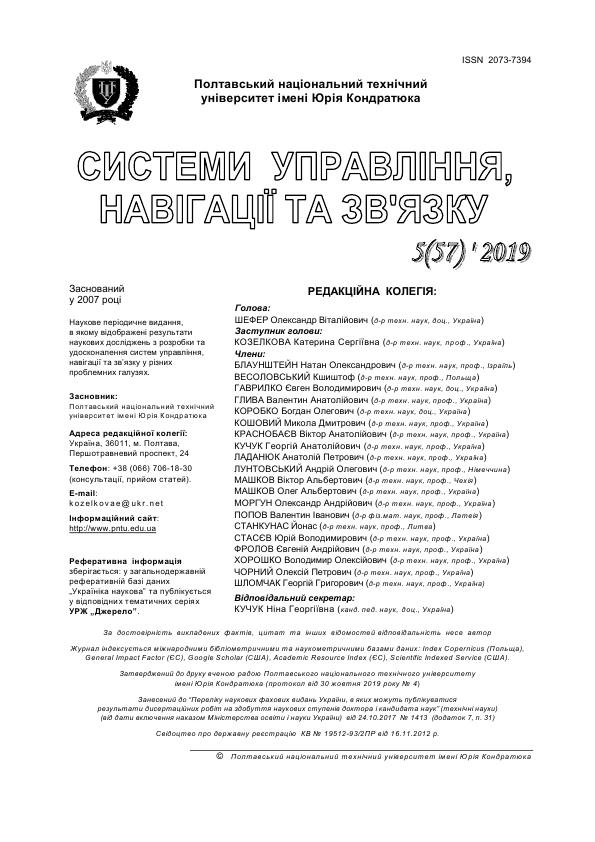THE RESEARCH TO KNOWN ATTACK MODELS FOR RECOMMENDATION SYSTEMS WITH COLLABORATIVE FILTERING
DOI:
https://doi.org/10.26906/SUNZ.2019.5.067Keywords:
recommendation systems, information attacks, information security, Internet bots, shilling attacks, collaborative filteringAbstract
The subject matter of the article is the process of procuring information security of recommendation systems. The goal is to investigate known attack models for recommendation systems with collaborative filtering. The tasks to be solved are: to study the main features of known attacks on recommendation systems, as well as methods for identifying and neutralizing these attacks. The following results were obtained: The researches to the main attack models on recommendation systems with collaborative filtering, their impact on the work results of the recommendation systems, as well as the characteristic features of these attacks that can allow them to be detected were conducted. Conclusions. The study found that the main type of attack on recommendation systems is the profile-injection attack. This type of attack can be implemented by the random attack, the average attack, the bandwagon attack, the popular attack, etc. These attacks can be used to increase the rating of a target object or to decrease its rating. However, there are specialized attack models that work effectively to decrease ratings, for example, a love/hate attack and reverse bandwagon attack. All these attacks differ from each other in the amount of information that an attacker needs to collect about the system. The more information he has, the easier it is for him to create bot profiles, which for a system will be difficult to distinguish from real ones and neutralize, but the more expensive and longer the preparation for an attack. The probe attack can be used to collect information about the recommendation system and its database. To protect recommendation systems from the profile-injection attacks, it is necessary to identify bot profiles and not take into account their ratings for the formation of recommendation lists. Identify bot profiles can be examining the statistics of user-profiles of the recommendation system. The study metrics that allow identifying bot profiles and recognizing some types of attacks was conducted.Downloads
References
Recommender Systems Handbook / Editors Francesco Ricci, Lior Rokach, Bracha Shapira, Paul B. Kantor. – 1st edition. – New York, NY, USA: Springer-Verlag New York, Inc. – 2010. – 842 с.
Lam S.K., Riedl J. Shilling recommender systems for fun and profit // In Proceedings of the 13th International World Wide Web Conference. – 2004. – pp. 393–402.
Улічев О.С., Мелешко Є.В. Програмне моделювання поширення інформаційно-психологічних впливів у віртуальних соціальних мережах // Сучасні інформаційні системи. – 2018. – Т. 2, № 2. – С. 35-39.
O’Mahony M.P., Hurley N.J., Silvestre G.C.M. Promoting recommendations: An attack on collaborative filtering // from book Database and Expert Systems Applications: 13th Int. Conf., DEXA Aix-en-Provence, France. – 2002. – pp. 494-503.
A.Williams C., Mobasher B., Burke R. Defending recommender systems: detection of profile injection attacks // Service Oriented Computing and Applications. – 2007. – pp. 157–170.
Chirita P.A., Nejdl W., Zamfir C. Preventing shilling attacks in online recommender systems // In Proceedings of the ACM Workshop on Web Information and Data Management. – 2005. – pp. 67–74.
Zhou W., Wen J., Qu Q., Zeng J., Cheng T. Shilling attack detection for recommender systems based on credibility of group users and rating time series // PLoS ONE 13(5): e0196533. – 2018. – DOI: https://doi.org/10.1371/journal.pone.0196533
Kumari T., Punam B. A Comprehensive Study of Shilling Attacks in Recommender Systems // IJCSI International Journal of Computer Science Issues, Volume 14, Issue 4. – 2017. – URL: https://www.ijcsi.org/papers/IJCSI-14-4-44-50.pdf
Mobasher B., Burke R., Bhaumik R.,Williams C. Toward trustworthy recommender systems: An analysis of attack models and algorithm robustness // ACM Transactions on Internet Technology, Vol. 7(4). – 2007. – 41 p.
Mobasher B., Burke R., Bhaumik R., Williams C. Effective attack models for shilling item-based collaborative filtering system // In Proceedings of the WebKDD Workshop . – 2005. – 8 p.




